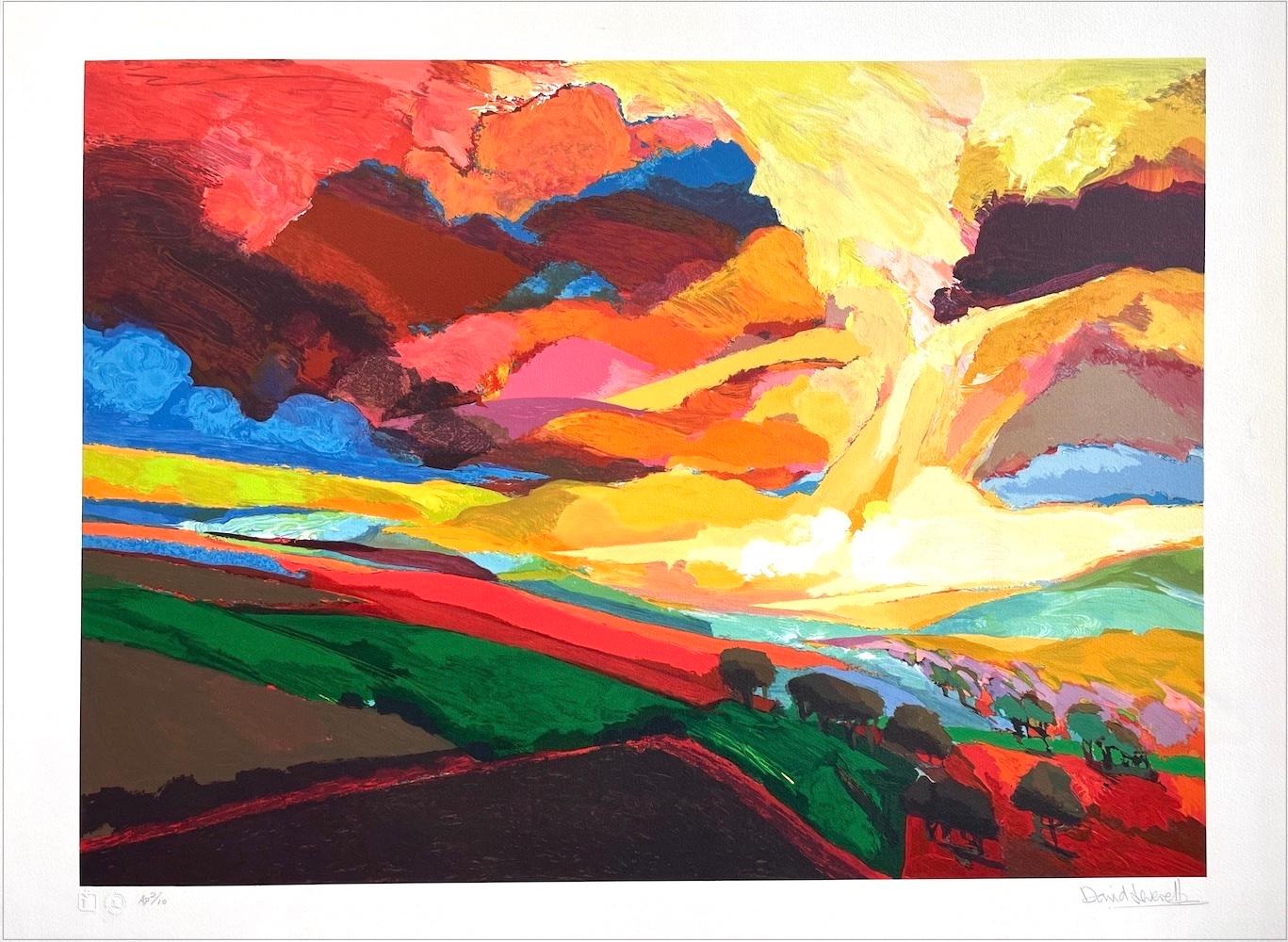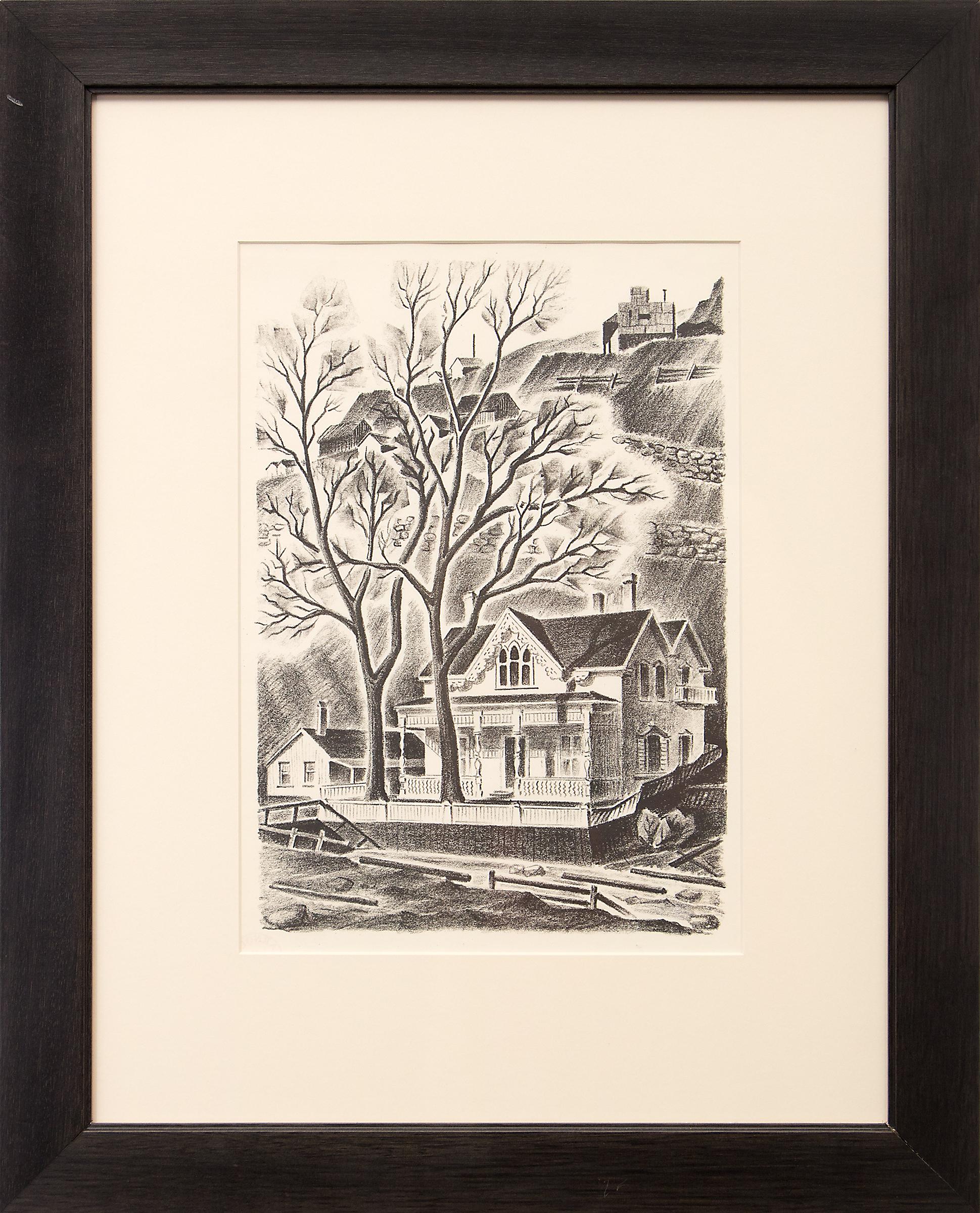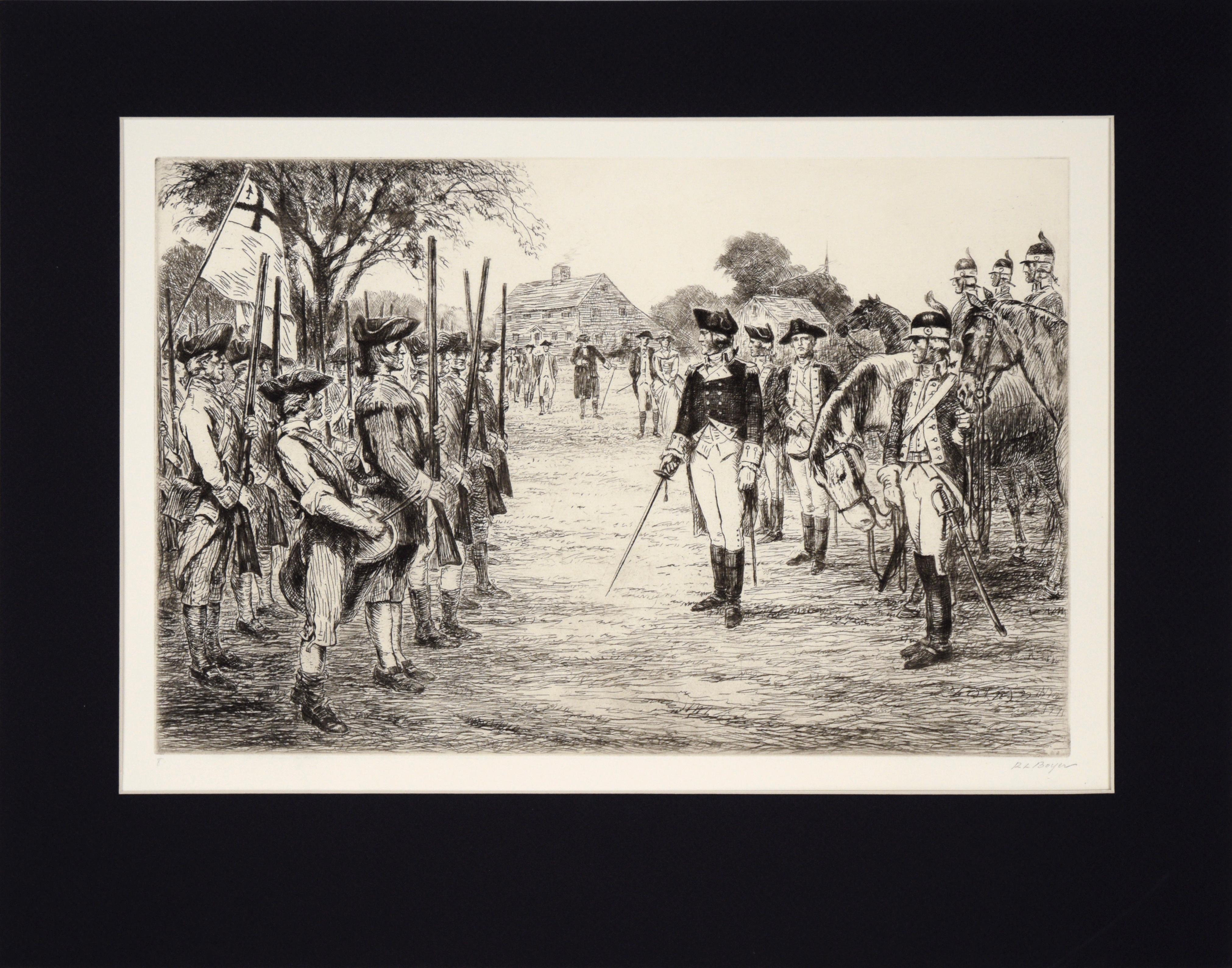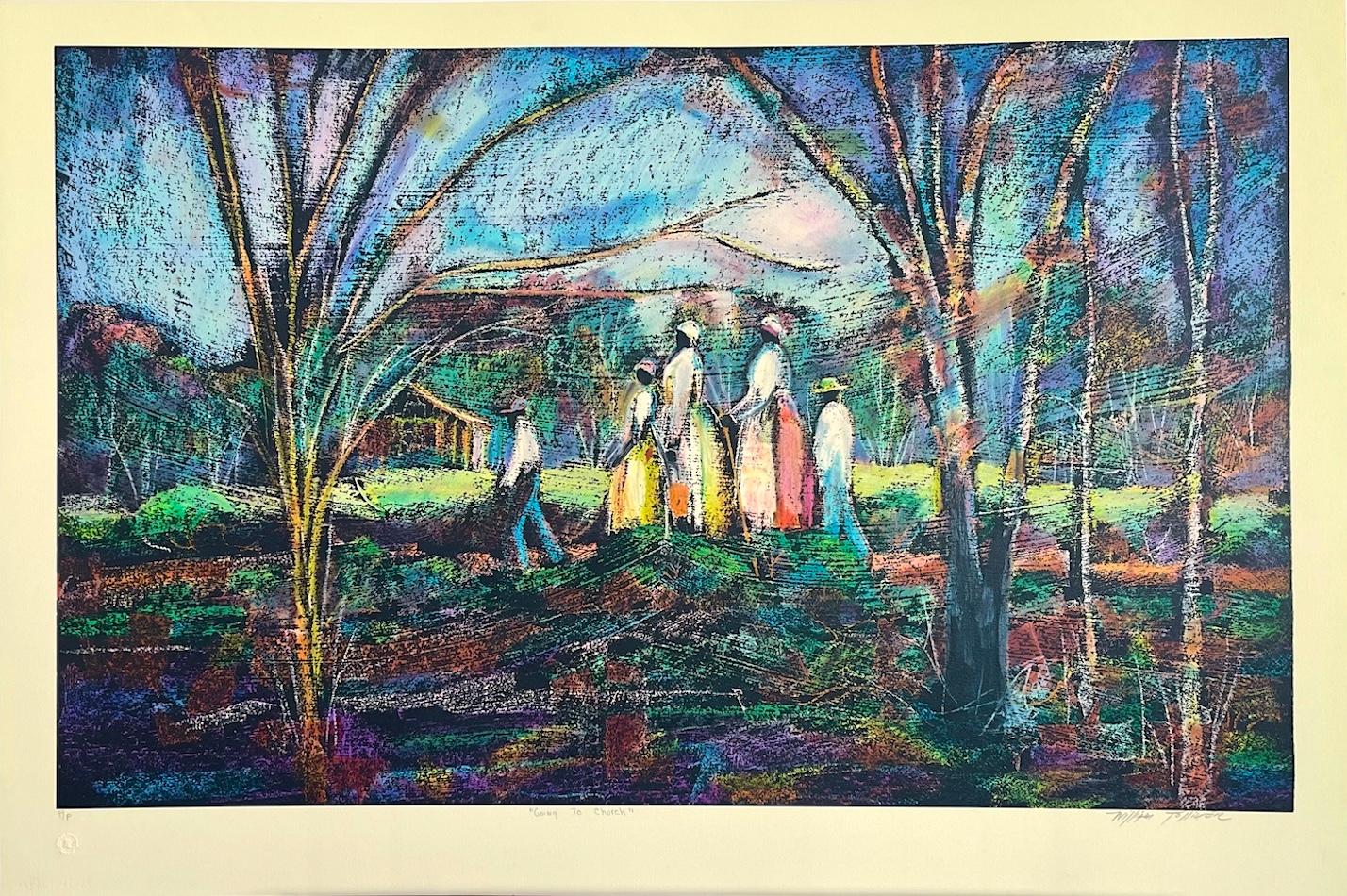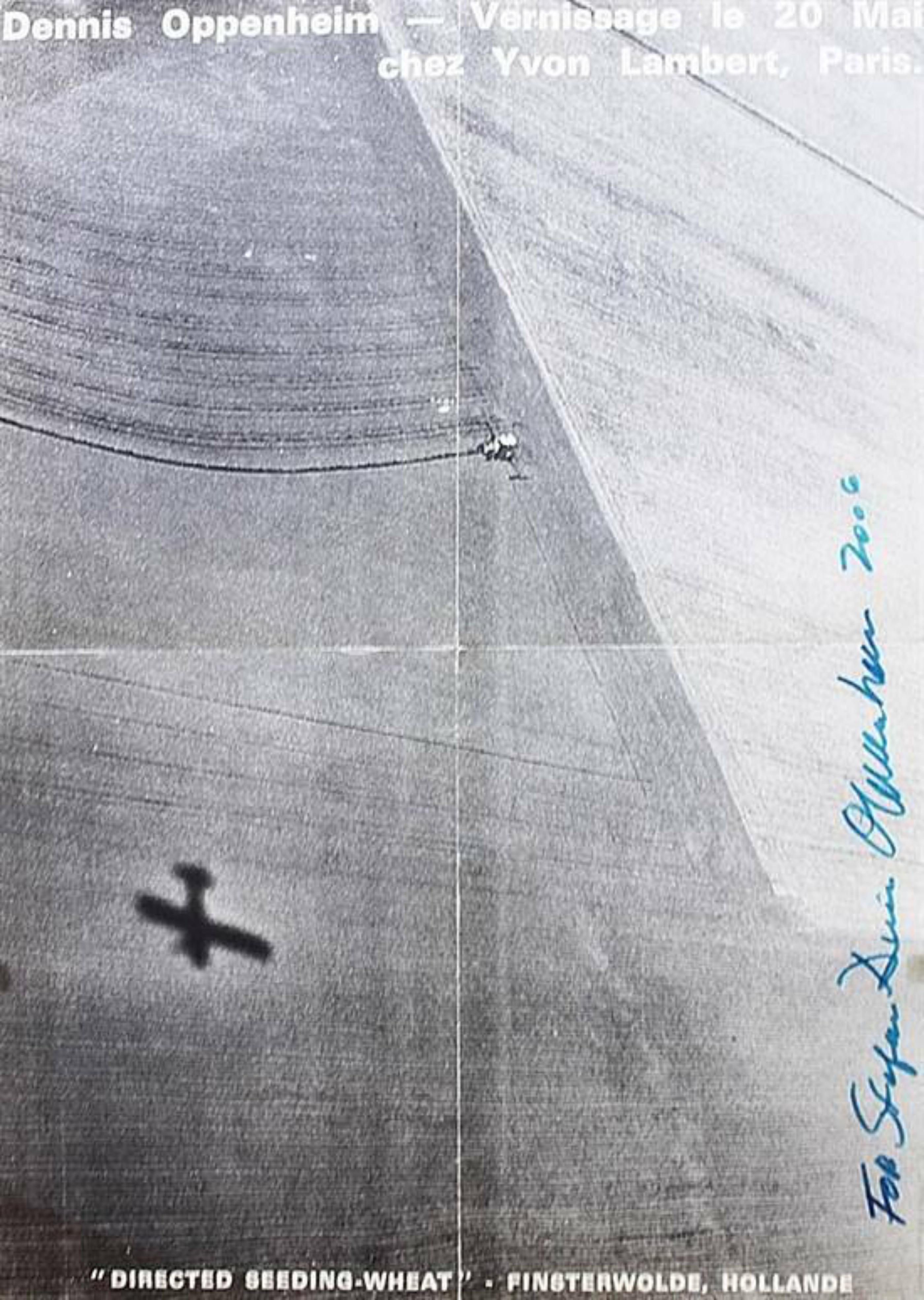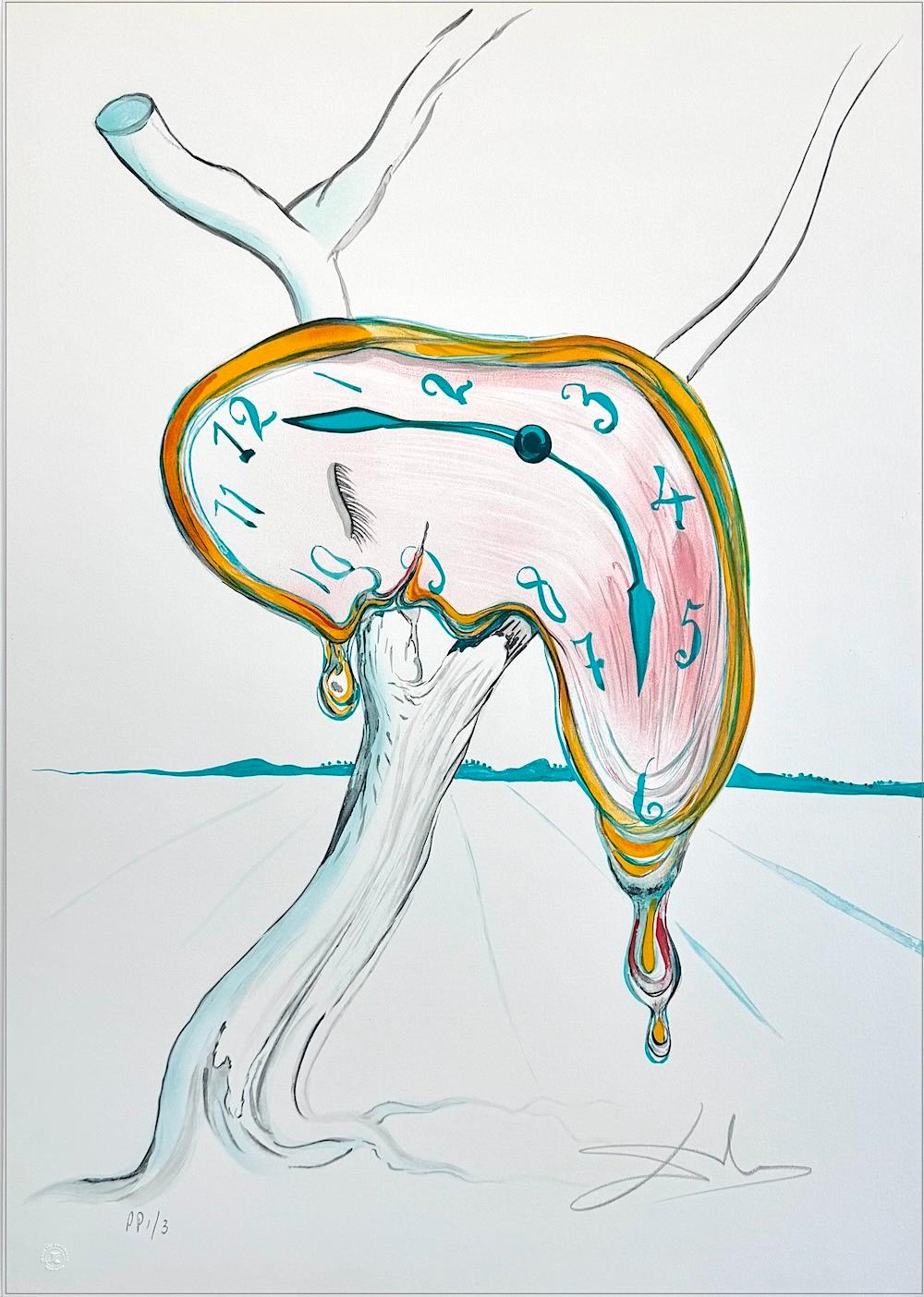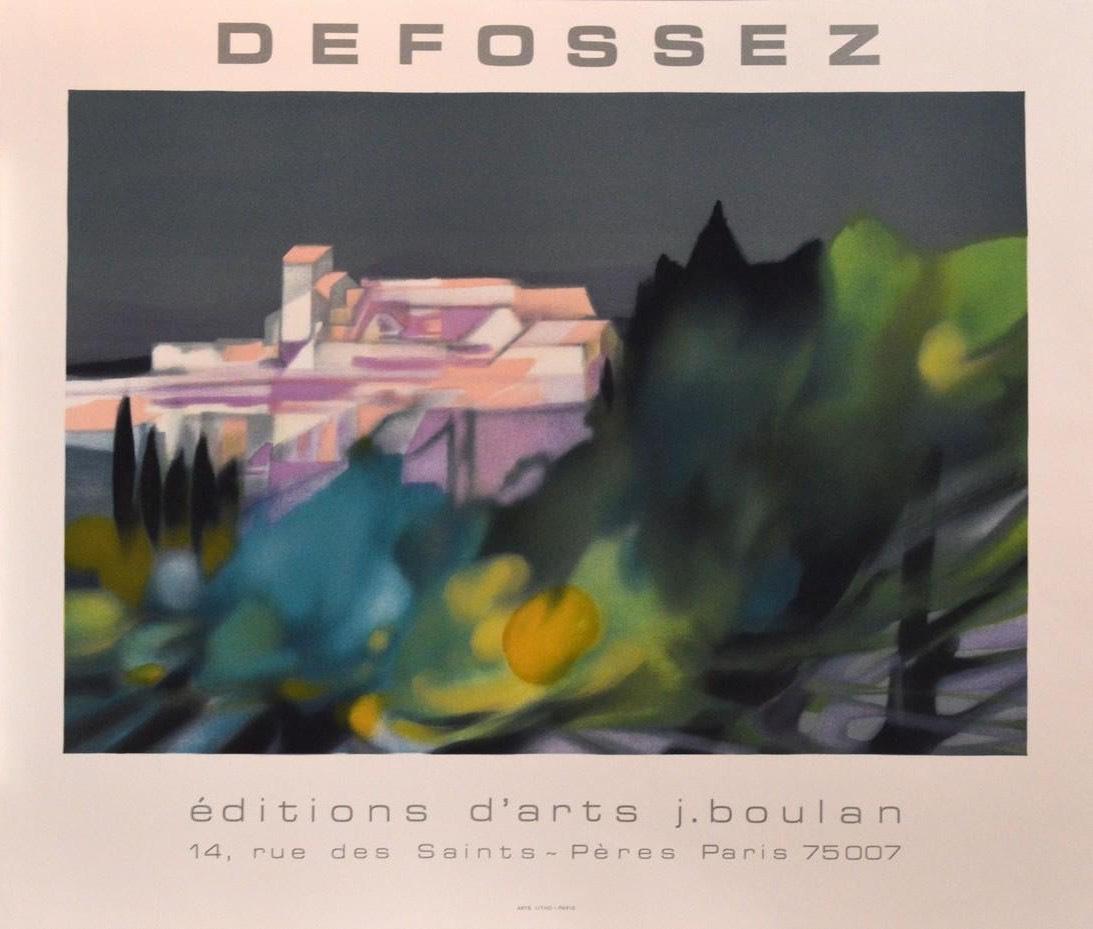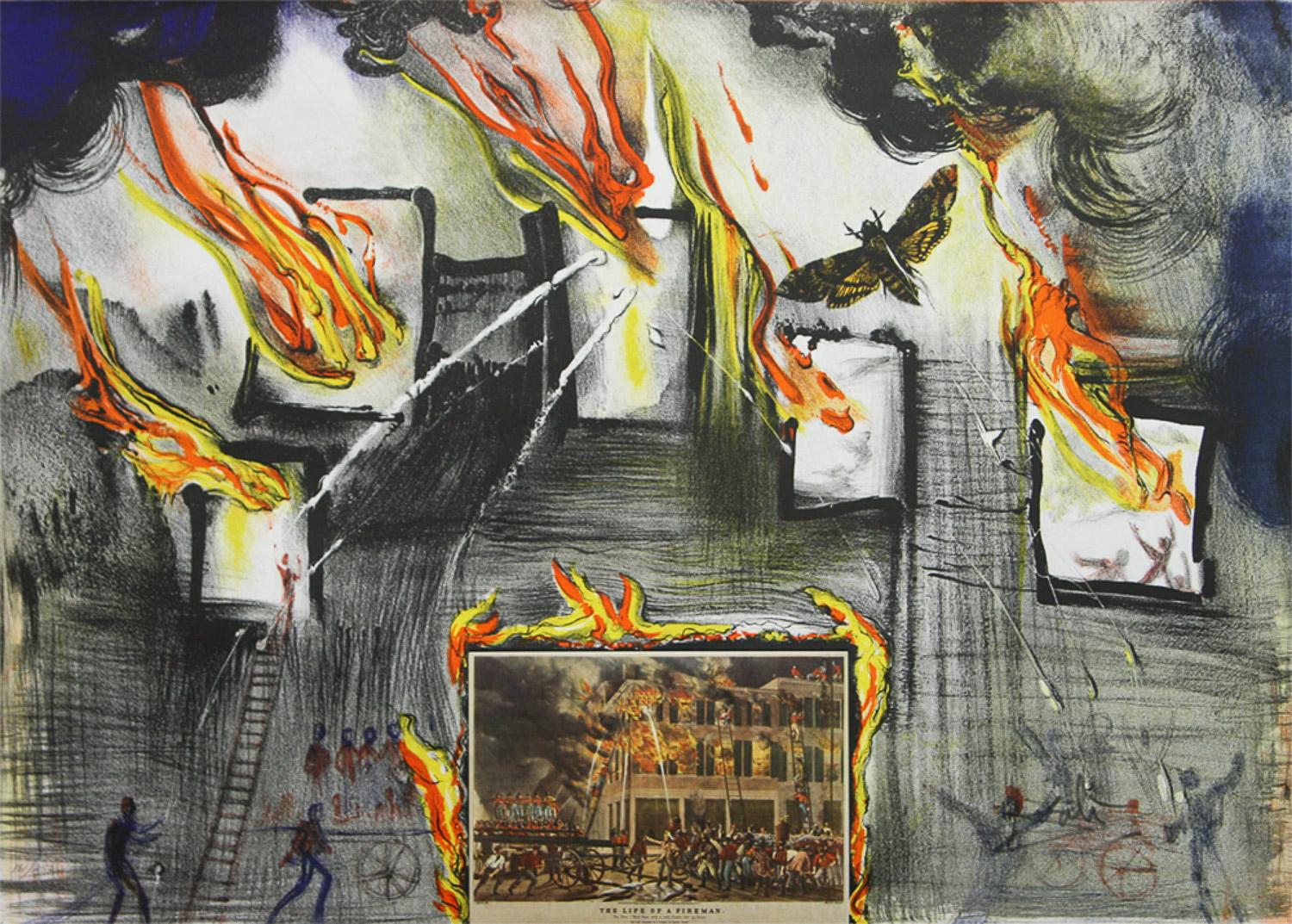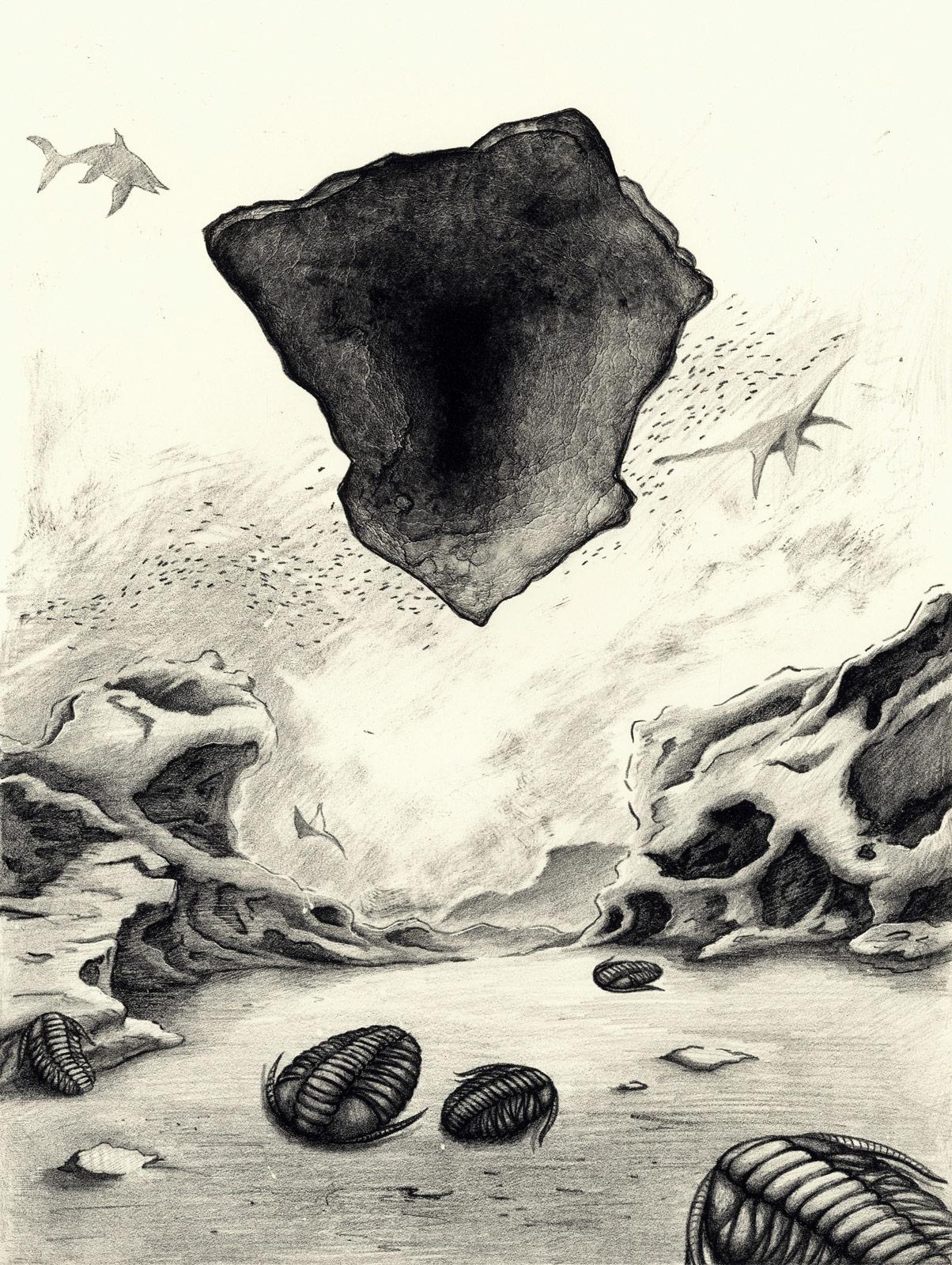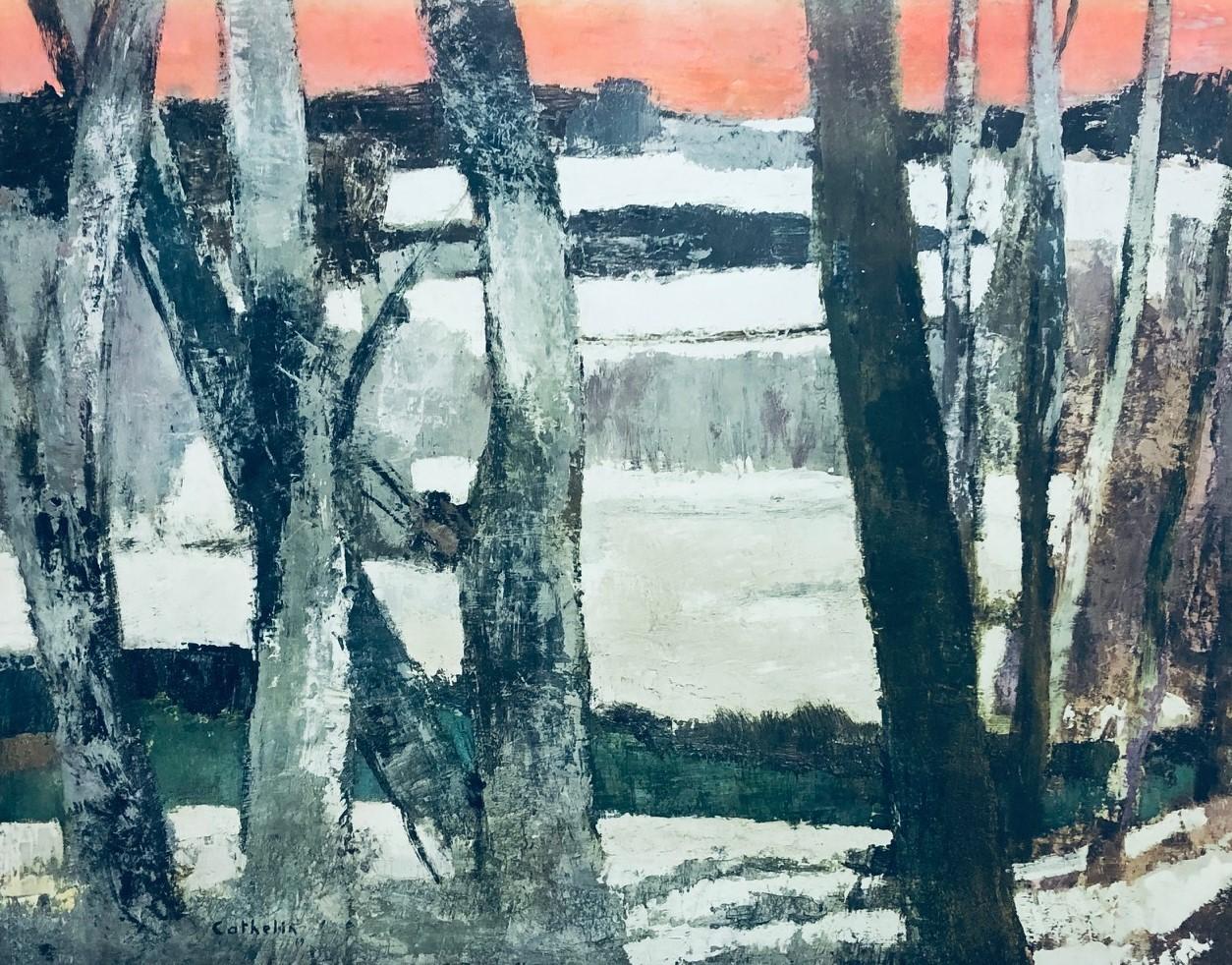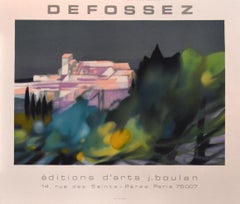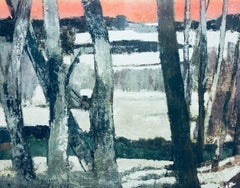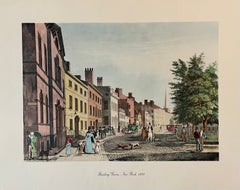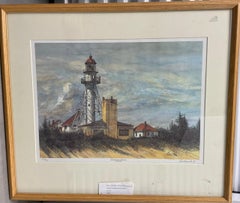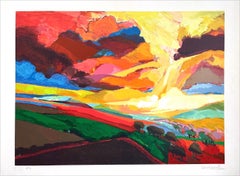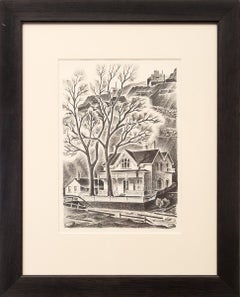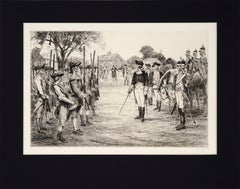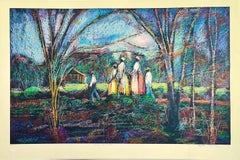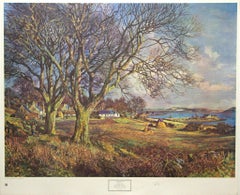
"Autumn Idyll" by James McIntosh Patrick. Printed by New York Graphic Society.
View Similar Items
Want more images or videos?
Request additional images or videos from the seller
1 of 7
James McIntosh Patrick"Autumn Idyll" by James McIntosh Patrick. Printed by New York Graphic Society.1955
1955
About the Item
- Creator:James McIntosh Patrick (1907 - 1998, British)
- Creation Year:1955
- Dimensions:Height: 30.5 in (77.47 cm)Width: 27 in (68.58 cm)
- Medium:
- Period:
- Framing:Framing Options Available
- Condition:
- Gallery Location:Clinton Township, MI
- Reference Number:1stDibs: LU126318705892
About the Seller
4.8
Vetted Professional Seller
Every seller passes strict standards for authenticity and reliability
Established in 2013
1stDibs seller since 2019
320 sales on 1stDibs
Typical response time: 14 hours
Authenticity Guarantee
In the unlikely event there’s an issue with an item’s authenticity, contact us within 1 year for a full refund. DetailsMoney-Back Guarantee
If your item is not as described, is damaged in transit, or does not arrive, contact us within 7 days for a full refund. Details24-Hour Cancellation
You have a 24-hour grace period in which to reconsider your purchase, with no questions asked.Vetted Professional Sellers
Our world-class sellers must adhere to strict standards for service and quality, maintaining the integrity of our listings.Price-Match Guarantee
If you find that a seller listed the same item for a lower price elsewhere, we’ll match it.Trusted Global Delivery
Our best-in-class carrier network provides specialized shipping options worldwide, including custom delivery.More From This Seller
View AllÉditions D’Arts J. Boulan, Paris-Poster
By Alfred Defossez
Located in Clinton Township, MI
ALFRED DEFOSSEZ (French, b. 1932)
Éditions D’Arts J. Boulan, Paris
Poster
25.125 x 29.75 in. Unframed
Publishing Information: Arts Litho Paris
Good Condition
Category
Late 20th Century Landscape Prints
Materials
Lithograph
$80 Sale Price
20% Off
Morin Valley In The Snow-Poster, New York Graphic Society. Printed in U.S.A.
By Bernard Cathelin
Located in Clinton Township, MI
Poster. 1971 New York Graphic Society Ltd. Printed in U.S.A. Measures 31.25 x 36.75 inches and is unframed. The image is in Very Good Condition. The white border has discoloration/su...
Category
1970s Landscape Prints
Materials
Lithograph
Bennett: Bowling Green, New York, 1826
Located in Clinton Township, MI
Historical Print entitled "Bennett: Bowling Green, New York" 1826 as noted in bottom Left Corner
It was published by Rudolf Leach Fine Arts, Inc.,
225 Fifth Avenue, New York City
...
Category
1820s Realist Landscape Prints
Materials
Lithograph
$120 Sale Price
20% Off
Whitefish Point
Located in Clinton Township, MI
Whitefish Point is a famous lighthouse located in Paradise, Michigan at the southeastern end of Lake Superior.
Leo Kuschel's paintings and prints are hig...
Category
Late 20th Century Realist Landscape Prints
Materials
Lithograph
$180 Sale Price
53% Off
SAN FRANCISO MUNICIPAL RAILROAD entitled "Tarantino's" by Susan Pear Meisel
Located in Clinton Township, MI
San Francisco is a colorful and lively place as so depicted by artist Susan Pear Meisel. This is a limited edition lithograph, plate signed by the artist; unframed (but we would be ...
Category
1970s Abstract Landscape Prints
Materials
Lithograph
$96 Sale Price
20% Off
Old Presque Isle Lighthouse (Michigan) -lithograph by Leo Kuschel
Located in Clinton Township, MI
Lighthouses are unique to decorate with to create a look that is comforting as well as historical.
This painting by Michigan artist Leo Kuschel is of the 3...
Category
Late 20th Century American Realist Landscape Prints
Materials
Lithograph
$160 Sale Price
20% Off
You May Also Like
SUMMER RUSH Signed Lithograph, Sacred Garden Series, Abstract Landscape
By David Leverett
Located in Union City, NJ
SUMMER RUSH is an original limited edition lithograph from the Sacred Garden Series of works by the British artist David Leverett (1938-2020), printed using hand lithography techniqu...
Category
1990s Contemporary Landscape Prints
Materials
Lithograph
1930s Black and White Lithograph of House at Gregory Point, Colorado Landscape
By Arnold Rönnebeck
Located in Denver, CO
This original lithograph by renowned modernist Arnold Ronnebeck (1885-1947) depicts a charming home in Gregory Point, near Central City, Colorado. Created during the 1930s, this piec...
Category
1930s American Modern Landscape Prints
Materials
Paper, Lithograph
Washington Assumes Command - Etching on Paper
Located in Soquel, CA
Washington Assumes Command - Etching in Ink on Paper
Historical engraving by Ralph Ludwig Boyer (American, 1879-1952). George Washington is shown holding a sword, with an army stand...
Category
1930s Impressionist Figurative Prints
Materials
Paper, Drypoint, Lithograph
GOING TO CHURCH Signed Lithograph, Southern Landscape, African American Heritage
By William Tolliver
Located in Union City, NJ
GOING TO CHURCH was the very first limited edition print created by the self-taught African American artist William Tolliver (b.1951-2000) in 1987. GOING TO CHURCH is an original han...
Category
1990s Contemporary Portrait Prints
Materials
Lithograph
Yvon Lambert Gallery Poster (Hand Signed and Addressed by Dennis Oppenheim)
By Dennis A. Oppenheim
Located in New York, NY
Dennis Oppenheim
Directed Seeding -Wheat, Historic Yvon Lambert Gallery Poster (Hand Signed and Addressed by Dennis Oppenheim), 1969
Offset lithograph poster. Hand signed, inscribed. Postmarked and addressed to Oppenheim's dealer, John Gibson
23 × 16 inches
Hand Signed and inscribed by Dennis Oppenheim lower right in blue marker in 2006, hand addressed by Dennis Oppenheim in 1969 in red marker
Unframed
This is an extremely uncommon vintage poster/mailer announcing the May 20th, 1969 opening reception (Vernissage) for the exhibition of works by American conceptual art pioneer Dennis Oppenheim at the Yvon Lambert Gallery in Paris. The poster is historic in that it was originally mailed to John Gibson, the East 67th Street dealer, who famously gave Dennis Oppenheim his first New York exhibition in 1968, and it is hand addressed to Gibson, bearing the original Paris, France postmark of 1969. It is, exceptionally, hand signed and dedicated by Dennis Oppenheim to a collector who acquired the poster from John Gibson's collection, and then secured Dennis Oppenheim's autograph in 2006, making this an especially valuable collectors item.
More information about the project from the Tate Gallery archives, which acquired the work:
This work brings together two interventions Oppenheim created on a field owned by farmer Albert Waalken in Finsterwolde, north-eastern Holland, in 1969. It comprises four distinct elements mounted on board: a colour photograph of a wheatfield being sowed by a tractor in parallel curving lines seen from high up; a negative image in black and white of a map of the area of Finsterwolde onto which two sections of text have been collaged; and two black and white aerial photographs of the same field being traversed by a tractor cutting an X into the wheat. The first two elements relate to the action Directed Seeding. For this the field was seeded according to a line plotted by following the road from the village of Finsterwolde, the location of the field, to Nieuweschans, another village where the farmer’s storage silo for wheat was located. Oppenheim reduced this curved line by a factor of six in order to direct the trajectory of seeding. The tractor then carved a series of curved parallel lines on the surface of the field as it dug up earth and scattered seed. From an aerial perspective the patterning of parallel lines may be viewed as a form of line drawing on the landscape. The precise location of the field and the silo are indicated on the map, showing the trajectory of the road. The two sections of text collaged onto the upper portion of the map briefly describe the two interventions. Explaining the action Cancelled Crop, the artist wrote:
In September the field was harvested in the form of an X. The grain was isolated in its raw state, further processing was withheld. This project poses an interaction upon media during the early stages of processing. Planting and cultivating my own material is like mining ones own pigment (for paint) – I can direct the later stages of development at will. In this case the material is planted and cultivated for the sole purpose of withholding it from a product-oriented system. Isolating this grain from further processing (production of food stuffs) becomes like stopping raw pigment from becoming an illusionistic force on canvas. The esthetic is in the raw material prior to refinement, and since no organization is imposed through refinement, the material’s destiny is bred with its origin.
(Quoted from artist’s statement in Tate acquisition file.)
Directed Seeding and Cancelled Crop are two separate works, brought together in several different versions of which Tate’s is one. The collage presents three ways in which human action may marks the land. For the first two, agricultural machinery is used to create straight lines, in the process of harvesting as in the X of Cancelled Crop, or curved lines, during the process of planting seed in the contours photographed for Directed Seeding. The map shows a third (and more ancient) way of marking the land, through the construction of roads. The use of the landscape – natural, industrial or urban – as a canvas on which to act is typical of Oppenheim’s work in the late 1960s and early 1970s. In a related action, Directed Harvest, 1966 (Tate T07590) and Directed Harvest 1968 (Kröller-Müller Museum, Otterlo, Netherlands), the artist caused a field to be harvested in linear patterns which he then had photographed in its progressive stages. In Reverse Processing: Cement Transplant, East River, NY, 1970, 1978 (Tate T07591) Oppenheim drew large crosses on the roofs of barges transporting raw cement that he found moored on the New York East River banks. All these works centre on process as an agent of change and utilise materials, elements and locations on which the artist can have no permanent claim, making them deliberately ephemeral. Such actions as seeding a crop and harvesting it several months later operate within time parameters dependent on the cycles of the seasons rather than the will of man, mixing human processes with those of nature. Oppenheim’s analogy between the prevention of a crop from entering the food chain and the halting of the expressive, ‘illusionistic’ force of paint deconstructs the sophisticated processes of art-making and the food industry to the elemental notion of making simple marks on the environment. In this way, the artist highlights contemporary man’s dependency on complex chains...
Category
1960s Conceptual Abstract Prints
Materials
Offset, Lithograph
Paris: Boulevard des Invalides - Original Handsigned Lithograph, 1958
By Jean Carzou
Located in Paris, IDF
Jean CARZOU
Paris: Boulevard des Invalide, 1958
Original lithograph in color
Handsigned in pencil
Dated 1958 in pencil
Numbered / 100 ex
On Japan paper 29 x 40 cm (c. 11.4 x 15.7 in...
Category
1950s Modern Landscape Prints
Materials
Lithograph
